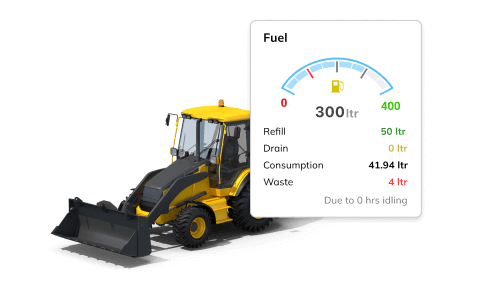In the construction industry, managing resources efficiently is important to ensure project success and sustainability. One of the most significant operational costs involves fuel consumption for heavy machinery and equipment, pivotal for daily operations. The advent of wireless fuel level sensors has marked a technological leap, offering a solution to the age-old challenge of fuel management.
Introduction
Challenges
High Fuel Costs: Fuel expenses account for a substantial portion of operational costs in construction projects. With fluctuating fuel prices, managing these costs becomes increasingly challenging.
Manual Monitoring Difficulties: Traditional fuel monitoring methods are manual, involving tedious checks and estimations. Such practices are not only time-consuming but also prone to human error.
Operational Disruptions: Unexpected fuel shortages can grind construction operations to a halt, causing significant delays.
Environmental Concerns: The construction industry is under growing pressure to reduce its carbon footprint. Inefficient fuel usage not only leads to unnecessary expenses but also higher emissions, conflicting with global environmental sustainability goals.
Challenges

Solution
Wireless fuel level sensors address these challenges head-on by offering:
Real-Time Fuel Monitoring: These sensors provide continuous monitoring of fuel levels, alerting managers to low levels before it leads to operational disruptions.
Data Analytics: By leveraging data analytics, construction managers can assess fuel consumption patterns, identifying areas of inefficiency. This analysis enables strategic decisions to optimize fuel use, reducing waste and lowering costs.
Theft and Leak Detection: Immediate alerts for sudden drops in fuel levels can indicate potential theft or leaks, allowing for swift action to prevent further losses. This feature not only safeguards resources but also enhances operational security.
Remote Access: The wireless nature of these sensors allows for remote monitoring and access to fuel data, enabling better fleet management and decision-making from anywhere, at any time.

Results
The integration of wireless fuel level sensors in construction projects has yielded significant benefits:
Reduced Fuel Costs: Companies have reported considerable savings in fuel expenses, attributed to the optimization of fuel consumption and the minimization of wastage.
Enhanced Operational Efficiency: The ability to monitor fuel levels in real-time and analyze consumption patterns has enabled better planning and resource allocation, reducing downtime and avoiding project delays.
Environmental Benefits:Improved fuel efficiency has led to lower emissions, aligning with the industry’s efforts towards environmental sustainability and compliance with regulatory standards.

